Seven weeks ago, Graham Potter left Brighton & Hove Albion for a team lower in the Premier League table.
Months after leading the Seagulls to their best-ever top-division finish — ninth place in 2021-22, just five points away from qualifying for European competition, with late-season wins over Arsenal, Tottenham Hotspur and Manchester United — Potter’s team had started the new season brilliantly, beating United again and walloping Leicester City 5-2 on the way to fourth in the table. Chelsea were only three points behind them in sixth, but had just fired Champions League winner Thomas Tuchel after a disastrous start to this season’s European campaign.
– Stream on ESPN+: LaLiga, Bundesliga, MLS, more (U.S.)
The pull of the top competition was evidently too much: Potter left the Sussex coast for London to take over Chelsea’s high-end, low-cohesiveness roster, and order has more or less been restored since.
On Saturday, Potter’s Blues will visit Brighton, having risen to fifth in the table (fourth in points per game) and clinched first place in their Champions League group. Their next loss will be Potter’s first. Brighton, meanwhile, has labored under new manager Roberto de Zerbi, getting smited once again by the god of finishing and falling to ninth.
Potter and De Zerbi are two of quite a few coaches to have taken over for fired or departed coaches in the first three months of the season. Four jobs at Champions League clubs have already come open and been filled, and it’s not yet November. Let’s check in on how some of the more big-name managers are performing in their new roles.
JUMP TO: Roberto de Zerbi (Brighton) | Marco Rose (RB Leipzig) | Jorge Sampaoli (Sevilla) | Xabi Alonso (Bayer Leverkusen) | Others
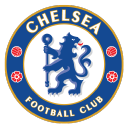
Graham Potter (Chelsea)
-
Hired: Sept. 7
-
Matches: 9 (6 wins, 2.33 points per game)
-
Goals average: 1.8 for, 0.4 against
-
xG average: 1.3 for, 0.9 against
-
Primary changes in odds (per FiveThirtyEight’s SPI): From 51% to 100% to advance to the Champions League knockout rounds, from 35% to 50% to finish in the Premier League top four
One of the most common impulses when making a coaching change, no matter the sport, is to hire the opposite of your ex. In terms of temperament, Chelsea may have done just that, replacing the mercurial Tuchel with the more laid-back Potter, but they also replaced a tinkerer with a tinkerer.
Tuchel had deployed five starting formations in his seven matches this season (five with three at the back, two with four), with injury and restlessness both causing him to shuffle his lineups constantly. Potter has done exactly the same thing: Nine matches have seen six starting formations, though he has begun to settle in. Over the last four matches, Potter has stuck primarily with something close to a 3-4-2-1.
Almost no one on the Chelsea roster can say that Potter hasn’t given them a chance thus far — no one but Edouard Mendy (and attacker Hakim Ziyech), anyway. The 30-year old goalkeeper was Tuchel’s first choice and a stalwart on 2021’s Champions League-winning squad. But he battled form issues late last season, and an injury meant that Potter had to go with Kepa Arrizabalaga between the posts. Kepa’s brilliant form has since necessitated that he remain in the lineup. He’s the only player to have recorded 100% of the available minutes under Potter. Incredibly, no one else has topped even 80%.
Potter has thus far given at least 128 minutes to 19 players, a product of both experimentation and necessity. Midfielder N’Golo Kante and defenders Reece James and Wesley Fofana are currently injured and have combined for just 478 minutes since Potter took over. But virtually everyone else has gotten a run, from old (Thiago Silva, with 78% of available minutes) to young (Trevoh Chalobah, 73%), from newcomer (Pierre-Emerick Aubameyang, 62%) to stalwart (Cesar Azpilicueta, 54%) and from young Englishman (Conor Gallagher, 39%) to young American (Christian Pulisic, 25%).
It’s difficult to produce results while experimenting to this degree, but Potter and Chelsea have done so thus far. They have allowed just four goals despite all the shuffling in the back, and 11 different players have scored at least once. The Chelsea attack comes from everywhere and everyone: Of the 19 players with at least 100 minutes, nine are averaging between 0.26 and 0.54 combined xG+xA per 90 minutes, led by Gallagher (0.54) and Aubameyang (0.45).
Chelsea pulled 10 points from four Champions League matches — two wins over Italian champions AC Milan and a win and a draw against Austrian champions FC Salzburg — to clinch advancement there, and after opening with three Premier League wins, they settled for home draws against Brentford and Manchester United.
Their xG averages aren’t as positive as their overall scoring averages, but that’s primarily because of one match: a 2-0 win at Aston Villa. The Blues produced just 0.9 xG from eight shots, while Villa produced 1.8 from 18, but a brilliant performance from Kepa and a pair of opportunistic goals from Mason Mount — one a pounce on a defensive mistake, the other a brilliant free kick from 30 meters out — secured the victory. In only one other match (0-0 vs. Brentford) did they create a lower xG total than their opponent.
Things are going well, in other words. The battle for a top-four finish will not be over anytime soon, and one assumes that Potter will eventually hone his lineup selection a bit. But Chelsea is playing mostly positive, possession-heavy ball, and he has thus far made the gamble of firing Tuchel pay off. Now he just has to keep doing it.

Roberto de Zerbi (Brighton)
-
Hired: Sept. 8
-
Matches: 5 (0 wins, 0.4 points per game)
-
Goals average: 0.8 for, 1.8 against
-
xG average: 1.3 for, 1.1 against
-
Primary changes in odds: From 25% to 12% to finish in the Premier League top four
Potter’s Brighton served as a long-term example for the predictive power of xG in 2020-21. The Gulls finished 16th in the Premier League despite boasting the fifth-best xG differential in the league; they turned 1.5 xG per match into just 1.05 goals and lost 11 matches by one goal with 14 draws. It sure seemed like they should have produced better results and the following season, they did. They still weren’t excellent in the finishing department (1.43 xG per match, 1.11 goals), but they improved enough to flip some close matches — they went from averaging 1.05 points per game in matches decided by 0-1 goals to a more normal 1.43 — and finish ninth.
Perhaps the same fate eventually awaits De Zerbi. The former Shakhtar Donetsk manager helped to engineer a thrilling 3-3 draw at Liverpool in his debut, but in four matches since, Brighton has turned 62 shots worth 4.9 xG into just one goal. Against Brentford and Nottingham Forest, they attempted 40 shots to opponents’ 10 and got outscored by a combined 2-0. Leandro Trossard has scored four times under De Zerbi; no one else has found the net in 53 combined shot attempts.
If points were distributed based on xG totals — every nerd’s dream, am I right?? — they would have earned about eight points in De Zerbi’s five matches. Instead, they produced just two and have fallen from fourth to ninth in the Premier League.
1:04
Gab Marcotti and Julien Laurens feel that new Brighton manager Roberto de Zerbi is the perfect fit for the club.
If you look past the finishing problems — and if any club is familiar with both those issues and the potentially rewarding patience required to look past them, it’s Brighton — things are going pretty well. They indeed scored a draw at Anfield and performed rather well in a 3-1 loss to Manchester City, and against three other opponents (Spurs, Brentford and Forest) they averaged 18 shots to opponents’ six and were at a 59% possession rate or higher in each match.
De Zerbi had no Brighton experience before he came to town, but he’s a clear kindred spirit. And for better or worse, he hasn’t had nearly as many choices to make when putting together his squad. Nine players have played all or nearly all of the minutes under De Zerbi thus far: Goalkeeper Robert Sanchez (100% of available minutes); defenders Adam Webster (100%), Lewis Dunk (100%) and Joel Veltman (94%); midfielders Solly March (100%), Moises Caicedo (99%), Alexis Mac Allister (99%) and Trossard (95%) and forward Danny Welbeck (98%). He has made only 17 of 25 available substitutions thus far, too, with only midfielder Tariq Lamptey making more than three substitute appearances (four for 76 minutes).
Maybe injuries and regression in that sense strike Brighton just as they start remembering how to score. But on paper, this should remain a top-10 Premier League team, and based solely on the advanced stats, De Zerbi has Potter’s old team playing about as well as Potter’s new team.
How much that matters on Saturday, however, will probably depend on whom the god of finishing smiles upon.
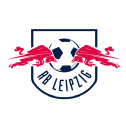
-
Hired: Sept. 8
-
Matches: 10 (6 wins, 2.0 points per game)
-
Goals average: 2.2 for, 1.4 against
-
xG average: 2.0 for, 1.4 against
-
Primary changes in odds: From 34% to 73% to advance to the Champions League knockout rounds, from 31% to 40% to finish in the Bundesliga top four
The last three years have been an absolute roller coaster for the 46-year old Rose. After two successful seasons at FC Salzburg — there are no other types of seasons there — he found immediate success at Borussia Monchengladbach. They were first in the Bundesliga table at the near-midway point of the season, and with wins in each of their last three matches they were able to fend off Bayer Leverkusen and others to snare fourth place and a Champions League bid for the first time in four years.
They advanced to the Champions League knockout rounds in 2020-21 and spent most of the first half of the season in the Bundesliga top four again, but after Gladbach announced he would be leaving for Borussia Dortmund at the end of the season, the team fell apart and finished 10th. His lone season with BVB was beset by injury and inconsistency. Borussia Dortmund finished second in the Bundesliga but finished well back of what seemed like a vulnerable version of Bayern Munich, and in Europe they were knocked out of the Champions League group stages and quickly bowed out of the Europa League after allowing six goals in two matches against Rangers. It seemed like he had misplaced all the magic from his possession-and-passion style, and BVB dismissed him.
Once you’ve coached a top-level German team, however, it seems you will always have a job, and when RBL fired Domenico Tedesco after a terribly disappointing start — only one win in their first five Bundesliga matches, plus a shocking 4-1 home loss to Shakhtar Donetsk to begin Champions League play — they elected to bring Rose back to his hometown.
When things go poorly for either Rose or RBL, it tends to come via waves of issues in transition defense. That makes sense for the high-possession, high-wire act both entities attempt, and Rose’s time in Leipzig has been rather all-or-nothing. He started with a 3-0 walloping of Dortmund, his former team, then followed that up with losses of 2-0 at Real Madrid (forgivable) and 3-0 at his other former team, Gladbach (less forgivable).
Since then, however, there have been more ups than downs. Their last seven matches have produced five wins and two draws, and while defensive vulnerabilities popped up again in recent matches — a 3-2 win vs. Hertha Berlin and a 3-3 draw at Augsburg (Augsburg scored the first three goals, then let RBL back in after a red card) — that doesn’t matter as much when you’re averaging nearly three goals per match.
Rose switched things from a mostly three-at-the-back approach under Tedesco to a more straightforward 4-2-3-1, and he is getting typically brilliant production from Christopher Nkunku (6 goals and 19 chances created in 10 matches in all competitions with Rose). Meanwhile, forwards Timo Werner and Andre Silva have combined for 7 goals and 4 assists from 19 chances in that span, and 22-year old Dominik Szoboszlai, reunited with Rose after they spent a season together at Salzburg, is looking more like one of Europe’s most creative players by the day (1 goal and 5 assists from 27 chances created).
With Tuesday’s upset of Real Madrid, RBL has put itself in good position to advance in the Champions League; they need only a draw against Shakhtar to advance. And while the race for the Bundesliga top four is particularly crowded at the moment — FiveThirtyEight currently gives nine teams, half the league, at least a 15% chance of finishing there — RBL will be an obvious favorite if they continue their prolific ways.

Jorge Sampaoli (Sevilla)
-
Hired: Oct. 5
-
Matches: 6 (2 wins, 1.5 points per game)
-
Goals average: 1.3 for, 1.0 against
-
xG average: 0.8 for, 1.5 against
-
Primary changes in odds: From 16% to 0% to advance to the Champions League knockout rounds, from 2% to 3% to finish in LaLiga top four, from 13% to 9% to suffer relegation
There were some warning signs last year. Julen Lopetegui led Sevilla to three consecutive fourth-place finishes in LaLiga, plus a Europa League crown in 2020, but they won only five of their last 18 league matches last season and finished fourth only because of an early cushion they had built over rival Real Betis. Meanwhile, they failed to advance in the Champions League and bowed out of the Europa League in the round of 16.
FiveThirtyEight projected Sevilla seventh in the league heading into 2022-23, and seventh quickly began to feel optimistic. They pulled just five points from their first seven league matches and got outscored by a combined 8-1 in their first three Champions League matches too. They were already 10 points out of the top four when Lopetegui was fired on Oct. 5.
Sampaoli is a ridiculously seasoned manager — the 62-year old has managed 13 different clubs now, plus two national teams (Chile, Argentina) — and put together a lovely performance as Marseille‘s manager last year. It was a little strange that he accepted this job, if only because he had left Marseille in part out of frustration that they weren’t making more offseason moves and landed with a club that didn’t make many offseason moves. They sold the rights to center-backs Jules Kounde and Diego Carlos to Barcelona and Aston Villa, respectively, for a combined $89 million, replaced them with Tanguy Nianzou and Marcao for $34 million, added a few loanees, and that was about it. Sampaoli has stabilized things … to a degree. This being Sevilla, they’re still drawing in half their matches, but they have lost only once since he took over.
0:55
Gab Marcotti and Julien Laurens discuss Sevilla’s appointment of Jorge Sampaoli as manager.
There are still some warning signs, though. For starters, look at the xG averages above — they’re awful. In league draws with Athletic Club and Valencia and a win over Mallorca, they outscored opponents by a combined 3-2 but attempted 32 shots worth 2.4 xG while allowing 43 shots worth 4.3. They got manhandled by Real Madrid, and they’ve only generated more shot value in one of six matches (they generated 0.8 xG to Borussia Dortmund’s 0.4 in their 1-1 draw on Oct. 11). They’re keeping bodies behind the ball, and they’ve blocked 19 shots in league play since Sampaoli took over (only Real Valladolid has blocked more). That speaks to effort, hustle and all those good things, but it’s generally not a good thing, long-term, when your opponent is attempting both more shots and better shots.
Perhaps the defense will stabilize when the personnel does? Six players have seen decent minutes in what is typically a three-man central defense from Sampaoli (Marcao and Nianzou, plus Jose Angel Carmona, Nemanja Gudelj, Kike Salas and Gonzalo Montiel), and he seems to still be attempting to find the best place on the pitch for players like Manchester United loanee Alex Telles, who has been positioned all along the left sideline. But Sevilla have continued to lose ground: They’re now 12 points back of the top four, and per FiveThirtyEight their odds of playing in the Spanish second division next year are higher than their odds of playing in the Champions League.
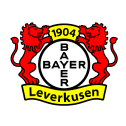
Xabi Alonso (Bayer Leverkusen)
-
Hired: Oct. 5
-
Matches: 5 (one win, 1.0 points per game)
-
Goals average: 1.8 for, 2.4 against
-
xG average: 1.6 for, 2.0 against
-
Primary changes in odds: From 44% to 0% to advance to the Champions League knockout rounds, from 10% to 5% to finish in the Bundesliga top four, from 6% to 9% to suffer relegation
What a terribly disappointing season it’s been at the BayArena. After a rousing third-place Bundesliga finish last season, Bayer Leverkusen retained most of its core, including star attackers Patrik Schick and Moussa Diaby, and entered the season with sky-high expectations. They face-planted out of the gate, losing to third-division Elversberg in the DFB-Pokal and winning only once in their first eight matches in all competitions. A 2-0 home upset of Atletico Madrid brought hope, but they quickly followed that with losses to Bayern Munich and Porto by a combined 6-0. Manager Gerardo Seoane went from up-and-coming to unemployed in two months.
To the club’s potential credit, Leverkusen didn’t panic and bring in a low-upside veteran to steer them to safety. Instead, they aimed for upside in bringing in the 40-year old Alonso, a long-admired leader on the pitch whose only managerial experience was with Real Sociedad‘s B-team. His debut was an excellent 4-0 stomping of last-place Schalke 044, but the competition has stepped up since then, and Leverkusen’s old problems remain. They were outscored by Porto and Eintracht Frankfurt by a combined 8-1, they needed a late goal to save a 2-2 home draw against 14th-place Wolfsburg and they needed a late penalty save to hold onto a 2-2 road draw with Atletico.
The sample size is small, but Alonso has been working at moving Leverkusen to more of a three-at-the-back team, deploying a 3-4-3 in four of five matches. That has almost made them even more lopsided in attack, with the trio of Edmond Tapsoba, Jeremie Frimpong and Diaby pulling things to the right. Mind you, the Frimpong-Diaby combination is by far the best thing this team has to offer at the moment — they’ve combined for six goals and two assists in Alonso’s five matches alone — but they’re still waiting for Schick, their star center-forward with just three goals from shots worth 6.8 xG this year, to get going. (They’ll be waiting a bit longer, as he’s out with a calf injury.)
As with Brighton, the xG gods have been unkind to Alonso thus far. To be sure, their dreadful defense has not improved: They rank last in the Bundesliga in xG allowed per shot (0.13), and Porto, Frankfurt and Wolfsburg needed just 33 shot attempts to create 6.9 xG (and 10 actual goals) in recent matches. Still, they’ve created plenty of value, too. Against Porto and Wolfsburg, they created 4.6 xG to opponents’ 3.0 and were unfortunate to get outscored 5-2. (The tables evened out a bit against Atleti, which created 2.9 xG from 23 shots but couldn’t get past Leverkusen with its 13 shots for 1.5 xG.)
They’re still 15th in the Bundesliga, but their relegation odds remain low. They will probably right the ship soon, but this long run of poor form has already eliminated them from the Champions League … and has all but eliminated them from next season’s Champions League too.
A rundown of other managerial changes:
Above were the five biggest in-season moves to date, but plenty of other clubs changed managers early in this campaign. Let’s check in on the other eight (non-interim) newbies from Europe’s Big Five leagues.
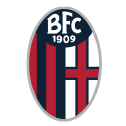
Thiago Motta (Bologna)
Hired: Sept. 12
The 40-year old former Paris Saint-Germain midfielder took over after a poor start for former manager (and leukemia patient) Sinisa Mihajlovic; he’s known for an aggressive, attacking philosophy, and they got picked apart by Juventus (3-0) and Napoli (3-2), but in their last two matches they’ve beaten Cagliari in the Italian Cup (1-0) and Lecce (2-0) in league play. Progress?
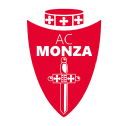
Raffaele Palladino (Monza)
Hired: Sept. 13
From a pure before-and-after standpoint, Palladino might be the best hire thus far. Monza had one point six matches into their first Serie A season, and they won three in a row — including a 1-0 defeat of Juventus — after he came aboard. They’ve lost their last two league matches, but that burst cut their odds of relegation in half, per FiveThirtyEight. They’re currently at just 20%.

Thomas Letsch (Bochum)
Hired: Sept. 22
If Palladino hasn’t provided the biggest shot in the arm, Letsch has. Bochum’s odds of relegation are still steep (currently 58%), but they hadn’t beaten a Bundesliga opponent since May 6 when he took over, and in the last three weeks they’ve taken down two of the hottest teams in the league, Eintracht Frankfurt (3-0 on Oct. 8) and Union Berlin (2-1 last Sunday). They also advanced in the DFB-Pokal.

Dejan Stankovic (Sampdoria)
Hired: Oct. 6
After resigning from Serbia’s Crvena Zvezda in August, Stankovic came aboard to attempt to save Sampdoria from relegation. The good news: They finally won their first league match of the season on Monday. Bad news: It took until Oct. 24 to win their first league match of the season, and their odds of relegation are still pretty high (45%).

Laurent Blanc (Lyon)
Hired: Oct. 9
The former PSG manager (and World Cup-winning defender) took over for Peter Bosz after a mediocre start, and he’s only been in charge for two matches thus far: a 3-2 loss with Rennes and a 2-1 win over Montpellier. The coming weeks will define Lyon’s season — their next three matches are against sixth-place Lille, fifth-place Marseille and last year’s fifth-place finisher, Nice. Now’s the time to jump back into the Champions League race.

Jorge Almiron (Elche)
Hired: Oct. 12
After a year away, Almiron returned for his second stint at last-place Elche two weeks ago. One cannot say he hasn’t attacked the challenge with vigor: In three matches, Elche has doubled its point total (from two to four) with a pair of 2-2 draws against Valencia and Espanyol. They’ve still got tall odds to overcome (68% chance of relegation), but they’re throwing some haymakers at least.

Salvatore Bocchetti (Hellas Verona)
Hired: Oct. 13
The 35-year old only recently retired from playing, and he got promoted from youth coach to full-on manager after the club dismissed Gabriele Cioffi. They have suffered competitive 2-1 losses to AC Milan and Sassuolo to start his tenure, continuing two season-long trends: decent offense and terribly leaky defense.

Unai Emery (Aston Villa)
Hired: This week
Emery is a brave man with “something to prove.” The former Arsenal and PSG boss leaves a Villarreal club with a 33% shot at a top-four finish in LaLiga and takes over a disorganized Villa team with a 9% chance at relegation from the Premier League.
